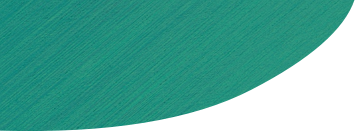Wise practices for health professionals
Promoting resilience among Indigenous children and families
“The meaning of resilience from an indigenous perspective is varied and diverse, just like the Aboriginal Peoples of Canada.” (Kirmayer, L. et al., Rethinking Resilience from Indigenous Perspectives, Can J Psychiatry. 2011;56 (2):84-91.)
Despite the adversity that many Indigenous communities face, many are working to revitalize language, culture, spirituality and promote individual and collective healing. This section includes only a few of these efforts. You will no doubt find evidence of resilience in the Indigenous communities you work with.
Empowering caregivers and families
- National Collaborating Centre for Indigenous Health fact sheets (2017-18)
- Encyclopedia on Early Childhood Development: Search “Indigenous” for many resources
- Emudluk, M. Qarmaapik House: A multi-use and safe place for families in Kangiqsualujjuaq. innovations in community health and wellness. Northern Public Affairs, July 2017.
- Early Learning and Child Care, Assembly of First Nations
- Inuit Qaujimajatuqangit: what Inuit have always known to be true. (2017) Edited by Joe Karetak, Frank Tester and Shirley Tagalik. Fernwood Publishing. Black Point, NS and Winnipeg, MB.
“… Inuit Qautimajatuqangit – meaning a complete body of knowledge and experience passed from generation to generation – is a unique collection of contributions by well-known and respected Inuit Elders.“
Empowering children and youth
- Pulla, Siomonn. Building on Our Strengths: Aboriginal Youth Wellness in Canada’s North. Ottawa: The Conference Board of Canada, 2013
- Toombs E. et al. Resilience in Canadian Indigenous Youth: A Scoping Review. International Journal of Child and Adolescent Resilience. 2016 Volume 1, Number 1, 2013, pp.4-32
- Our People Will Be Healed (2017) Director Alanis Obomsawin. National Film Board of Canada.
- Hi-Ho Mistahey (2013). Director Alanis Obomsawin. National Film Board of Canada.
- Innu Meshkenu: A 6,000-kilometer walk through Eastern Canada, that ran from 2010 to 2017.
- One of many examples of successful education programs designed for First Nations students: Eskicioglu P, Halas J, Sénéchal M et al. Peer mentoring for type 2 diabetes prevention in first nations children. Pediatrics. 2014 Jun;133(6):e1624-31.
Ethical research with Indigenous peoples in Canada
- The First Nations Information Governance Centre (2014). The First Nations Principles of OCAP® (Ownership, Control, Access and Possession).
- CIHR (2018). Tri-Council Policy Statement: Ethical Conduct for Research Involving Humans; Chapter 9: Research Involving the First Nations, Inuit and Métis Peoples of Canada
- Starkes JM, Baydala LT (2014). Health research involving First Nations, Inuit and Métis children and their communities. Canadian Paediatric Society, First Nations, Inuit and Métis Health Committee
- Wilson, S. (2008). Foreword & Chapters 1-3. In Research Is Ceremony: Indigenous Research Methods. Blackpoint: Fernwood Publishing, pp. 6-55.
- Schnarch, B. (2004). Ownership, control, access, and possession (OCAP) or self-determination applied to research: A critical analysis of contemporary First Nations research and some options for First Nations communities. Journal of Aboriginal Health, 1(1), 80-95.
- Institute of Indigenous Peoples' Health, Canadian Institute for Health Research

Last updated: Nov 20, 2023

